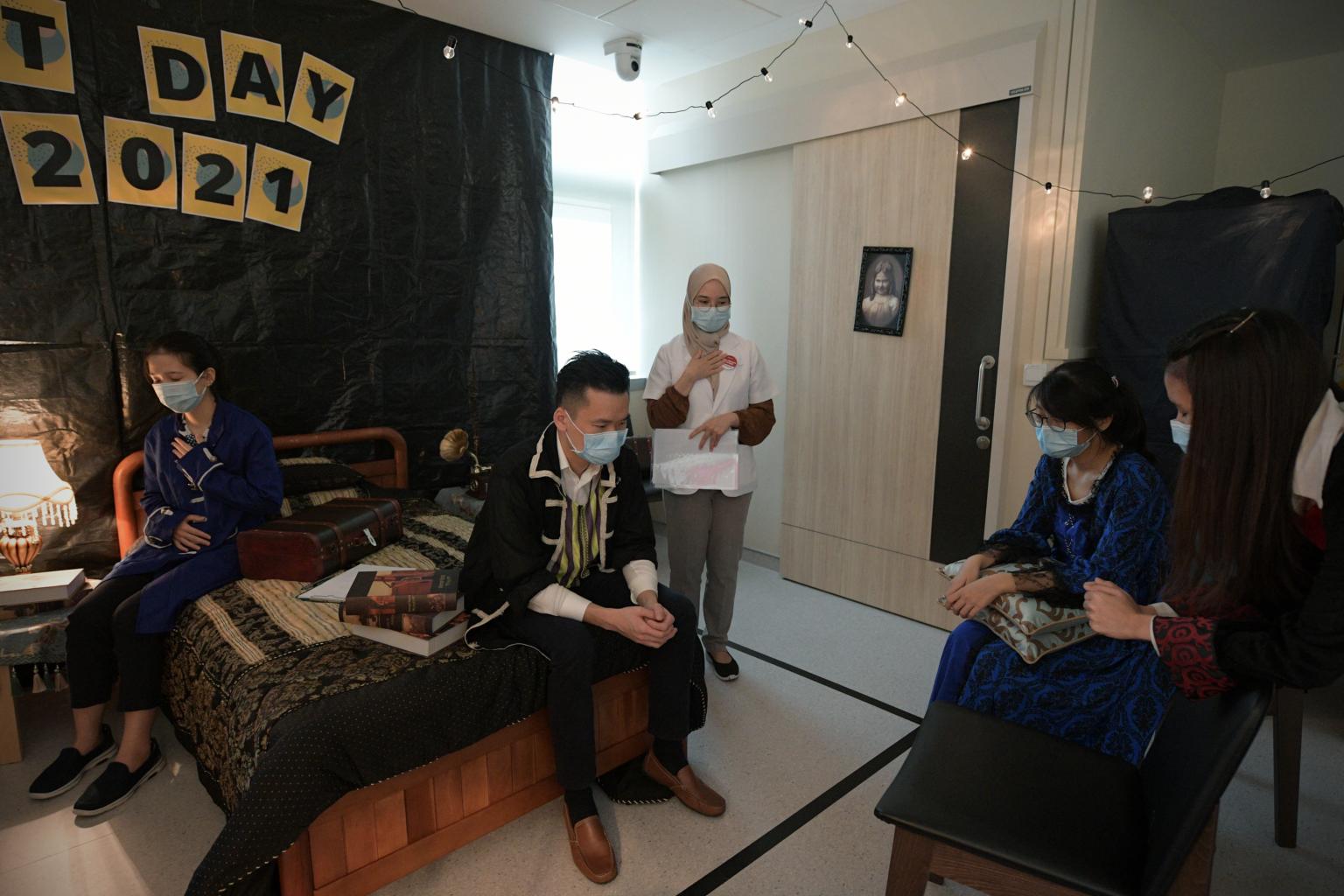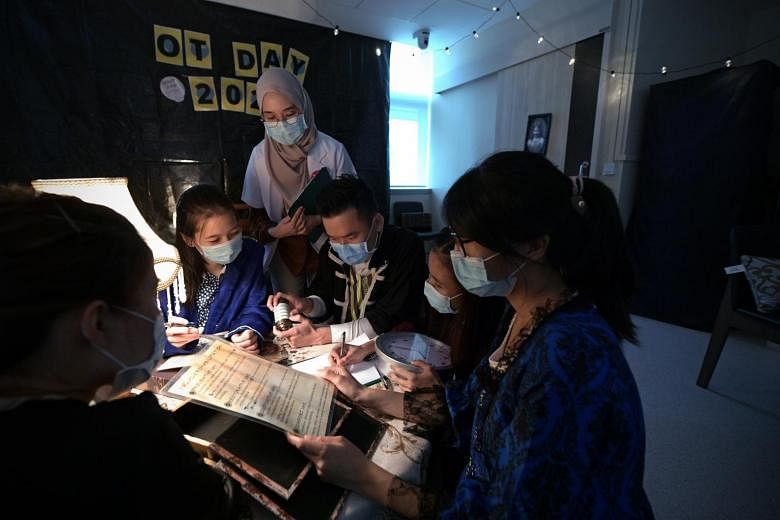SINGAPORE - Putting on a costume and solving puzzles in a mediaeval-themed room sounds like a fun weekend activity for a family or group of friends.
But for more than 200 healthcare workers at Tan Tock Seng Hospital (TTSH), it was part of training from March 22 to 31.
The aim was to learn more about palliative rehabilitation care by going through the escape room set up in TTSH.
Among those who participated in this inventive training exercise were about 100 occupational therapists, for whom palliative care knowledge has become increasingly important, said senior occupational therapist Nurul Ain Rahmat.
The 32-year-old told The Straits Times on Saturday (April 3) that occupational therapists typically try to help patients of all ages regain their daily functions after illness or accident.
However, palliative rehabilitation care focuses on patients with life-limiting diseases - such as end-stage lung disease - whose conditions will generally end up declining. The role of the occupational therapists is to help the patient slow or manage their decline.
"Our population is ageing at the moment, so we will soon see more patients who need palliative rehabilitation care. We will need occupational therapists to have knowledge of this sort of care, and how they can assist patients and their families," said Ms Ain.
She and a committee from TTSH worked with an escape room vendor in Singapore to make imparting new skills and knowledge to occupational therapists fun and engaging.
Participants in the 75-minute session went through five stations designed to test their knowledge of how to care for patients, such as by identifying the level of care a patient needs, commonly displayed symptoms, and intervention techniques.
Clues were hidden throughout the room and multiple puzzles needed to be solved. Participants also had to complete pre- and post-game quizzes to test their knowledge, take a survey and share key learning points.
Ms Ain said that preliminary feedback from the healthcare professionals who participated had been positive, with some saying it helped them be more engaged in learning and others commenting that it had helped improve their communication and teamwork skills.

"As healthcare professionals, we often need to work in teams, so it's important to improve such skills," she said.
One participant, 24-year-old occupational therapist Jasmine Ang, said: "Compared with regular training such as online learning and lectures, this escape room experience enhances the learning process as it is more engaging and interactive."
"I thoroughly enjoyed the experience," she added.



